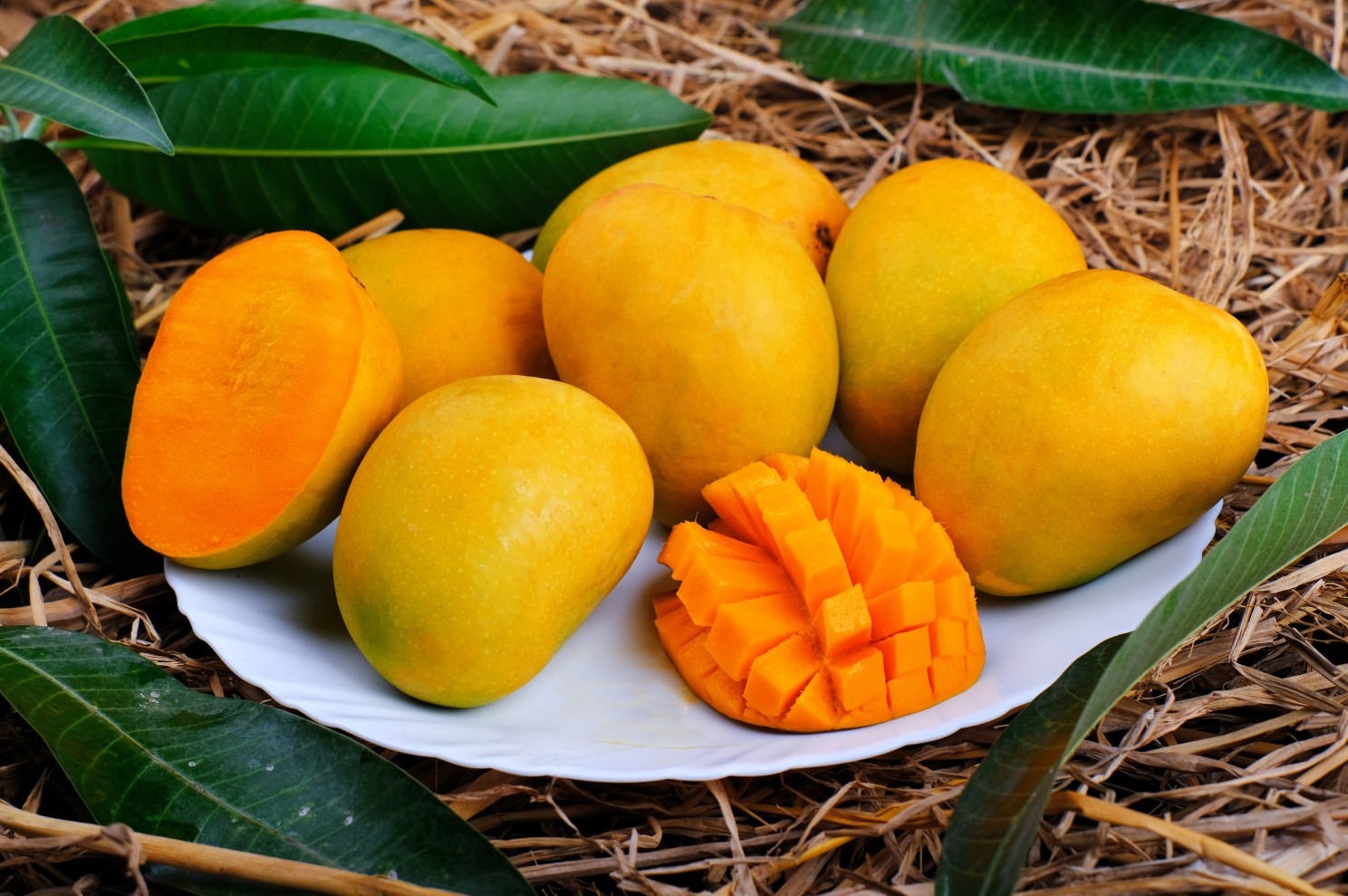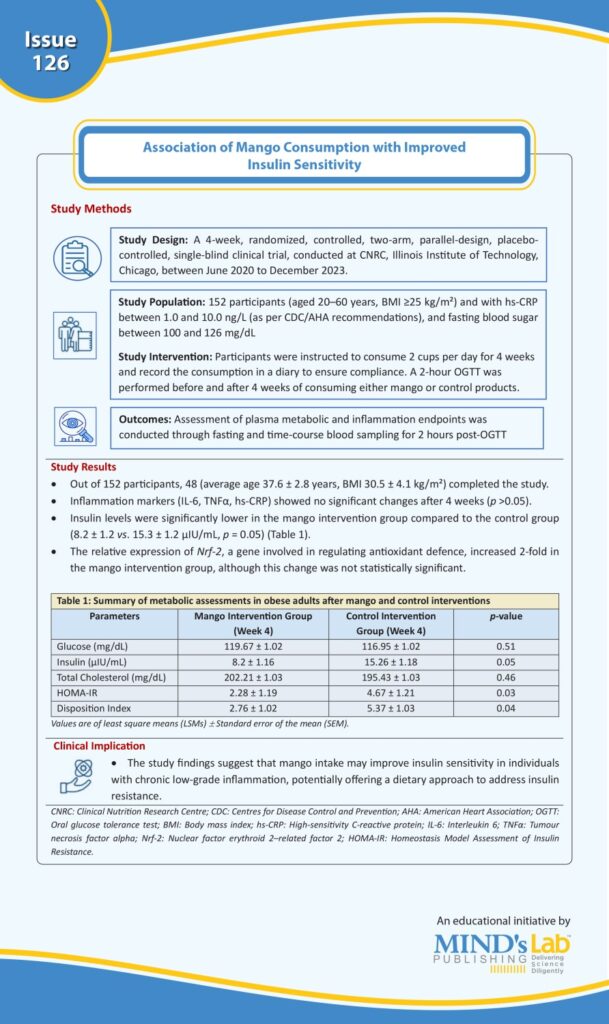
Chronic low-grade inflammation is a key factor in the development of metabolic diseases such as type 2 diabetes mellitus (T2DM), cardiovascular disease (CVD), and cognitive decline. Obesity, an inflammatory state, predisposes to T2DM and CVD. C-reactive protein (CRP), a marker of inflammation, is often elevated in individuals with obesity and is linked to an increased risk for CVD.
Mango, a tropical fruit rich in fiber, vitamins, and bioactive compounds like mangiferin, has been shown to have potential anti-inflammatory and glycemic-modulating effects, with a reduction in postprandial glucose levels. Preclinical studies have documented anti-inflammatory benefits with mango; however, human study results have been mixed.
A study by Pett et al., published in the journal “Nutrients”, investigated the effect of regular consumption of mango on inflammation and insulin sensitivity in individuals who are overweight/obese and with chronic low-grade inflammation. The study involved a 2-hour oral glucose tolerance test (OGTT) before and after 4 weeks of mango or control product intake (1 cup twice a day) in 48 adults (aged 37.6 years; body mass index [BMI] 30.5 kg/m2). While markers of inflammation (IL-6, TNFα, hs-CRP) did not change, mango consumption significantly lowered insulin levels (8.2 ± 1.2 vs. 15.3 ± 1.2 μIU/mL, p = 0.05) and improved insulin sensitivity.
The data suggest that mango intake may enhance insulin sensitivity in individuals with chronic low-grade inflammation, potentially through activating Nrf-2 genes and boosting antioxidant status (See Graphic).

(Source: Pett KD, Alex PG, Weisfuss C, Sandhu A, Burton-Freeman B, Edirisinghe I. Mango consumption is associated with increased insulin sensitivity in participants with overweight/obesity and chronic low-grade inflammation. Nutrients. 2025;17(3):490. https://doi.org/10.3390/nu17030490)
